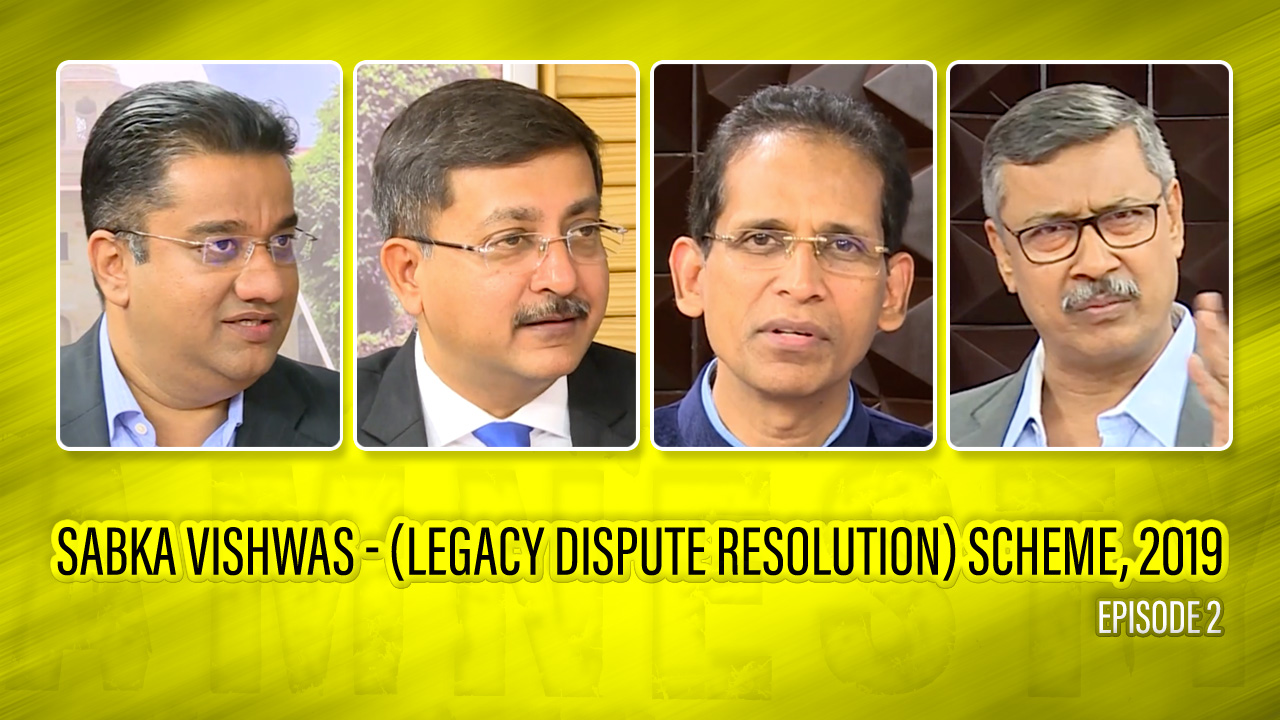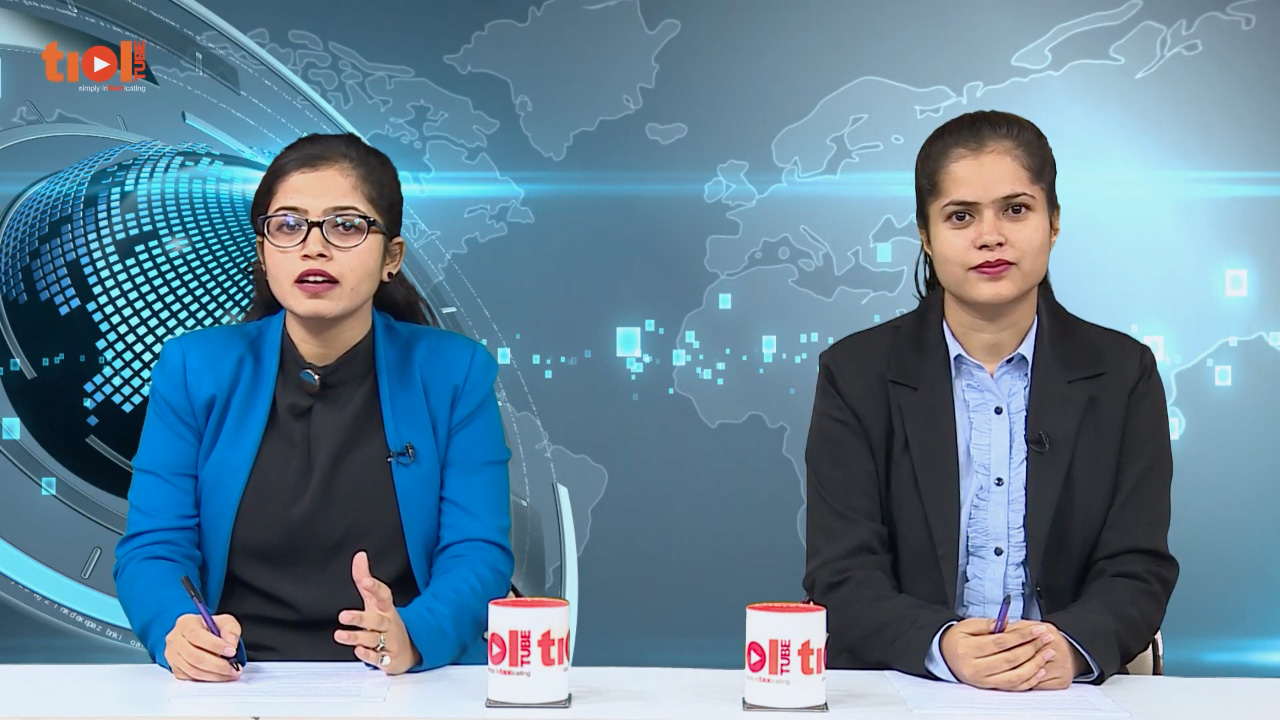|
SERVICE TAX
2019-TIOL-3204-CESTAT-ALL
Jaypee Greens Vs CC, CE & ST
ST - The assessee-company began constructing a hotel and availed Cenvat credit of duty paid on various input goods and services during the relevant period - It availed credit and filed ST-3 returns reflecting the same - Later upon realising that such credit was inadmissible, the assessee suo motu reversed the same without utilizing the same - Such reversal too was reflected in the ST-3 returns - Upon audit being conducted, the Revenue opined that the assessee should have paid interest on the credit initially availed and later reversed - SCN was issued raising demand for interest, which was confirmed upon adjudication along with imposition of penalty - Hence the present appeal.
Held - The credit availed by the assessee was not utilized and remained only in its books of accounts - The same was later reversed by the assessee suo motu on realising that the same was not available - No loss of revenue has occurred in such circumstances, so as to warrant raising demand for interest, which is nothing but payment to compensate any monetary loss - Hence raising demand for interesr for making entry in records is neither justified nor in accordance with law - Hence neither interest nor penalty merit being sustained - Moreover, the demand is barred by limitation considering that the credit was reversed in 2010 while the SCN was issued in 2012 - Hence the demand for interest merits being quashed: CESTAT
- Assessee's appeal allowed: ALLAHABAD CESTAT
2019-TIOL-3202-CESTAT-ALL
Agra Nagar Nigam Vs CC, CE & ST
ST - The assessee is a Municipal Corporation and after calling for tender, they offered slaughter house belonging to them for operation and management to M/s Frigorifico Allana Ltd. by entering into an agreement by charging license fee to M/s Frigorifico Allana Ltd. through a contract - It appeared to Revenue that the said transaction was covered by 'Renting of Immovable Property Service' - Appellant was issued with SCN dated 18 October, 2013 covering the period from 01 June, 2007 to 26 February, 2012 - The said SCN came to be adjudicated by Commissioner by way of passing two separate orders, one dated 10 January, 2014 and the other dated 19 September, 2014, which two orders are impugned by way of filing two separate appeals - As the same SCN has been adjudicated by way of order dated 10 January, 2014, the subsequent order passed on 19 September, 2014 has to be held as infructuous - As such, the appeal filed against the same being Service Tax Appeal No.70363 of 2018 is dismissed on the said ground itself as infructuous - As regards the other appeal being Service Tax Appeal No.52986 of 2014, service tax demand of around Rs.1.31 crores was raised through SCN by invoking extended period of limitation - Since the assessee is a local self-government, the allegation of intention to evade payment of tax is not sustainable against them - Therefore extended period of limitation was not available to the Revenue - Since the entire demand is beyond the normal period of limitation the same is not sustainable: CESTAT
- Appeal allowed: ALLAHABAD CESTAT
2019-TIOL-3201-CESTAT-MAD
Bharat Sanchar Nigam Ltd Vs Commissioner of GST & CE
ST - The assessee is provider of Telecommunication Services and are a public sector undertaking unit - The dispute emanates from availment of 100% CENVAT Credit of capital goods by the assessee instead of restricting the availment to 50% for the first financial year - The issue that comes up for decision is whether the confirmation of demand of wrongly utilized 50% Credit in respect of capital goods and interest thereon by Commissioner is in order and subsequently, whether the waiver of penalty under Section 78 ibid is legally correct - The restriction on availment of CENVAT Credit up to 50% only in respect of capital goods has been laid down in Rule 4(2)(a) of CCR, 2004 - No confusion found in the provisions mandated in said Rules - This being so, the assessee was patently in wrong when they have availed 100% of Credit in the first financial year instead of availing Credit of 50% only - It is not just a case of wrong availment in one year - Such wrong availment in excess of 50% of capital goods has been done by assessee not just for the period from 2006-07, but also for the subsequent years up to 2010-11 - The Commissioner's confirmation of demand of excess Credit availed is fully justified by law - Again, the Credit having been held to be wrongly availed and ordered to be adjusted to the subsequent financial year, the plea of the assessee that the demand of interest alone is hit by limitation cannot sustain - Further, it is not even the case that the assessee fit into the profile of an assessee referred to in the case of M /s. Kumaran Alloys (P) Ltd. - In the circumstances, no merit is found in assessee's appeal: CESTAT
- Appeal dismissed: CHENNAI CESTAT
CENTRAL EXCISE
2019-TIOL-3199-CESTAT-ALL
Gangeshwar Spinning Mills Vs CCE
CX - The assessee was working as 100% EOU and were manufacturing cotton yarn - They applied for debonding of their unit and converting the same from 100% EOU to EPCG scheme - Assessee filed application for refund stating that initially they have paid correct amount of duty and differential duty demanded by department on 30 July, 2009 was unwarranted - The said claim of the assessee was rejected - It is noted from page no.19 of appeal paper book which is a copy of letter dated 12.12.2007 issued by jurisdictional Central Excise, Deputy Commissioner to jurisdictional Range Superintendent directing the jurisdictional Range Superintendent that the duty is calculated and verified amounting to Rs.37,95,250/- on indigenous capital goods and the same may be got deposited by the party - Tribunal have also perused page no.20 of appeal paper book, which is letter dated 19.12.2007 issued by jurisdictional Range Superintendent to jurisdictional Central Excise, Deputy Commissioner stating inter-alia that the said amount of Rs.37,95,250/- was paid by the assessee and there were no dues pending against the assessee - Therefore, the observations of Commissioner (A) that calculation of duty payable on the indigenous capital goods for conversion of 100% EOU to EPCG scheme was done on self assessment basis are contrary to the fact of the case - Therefore, the impugned order is not sustainable, the same is set aside and the matter is remanded to Commissioner (A) to decide the matter afresh by taking into consideration copies of said two letters referred to above - Assessee is directed to make available the copies of said two letters before the Commissioner (A) for deciding the matter: CESTAT
- Matter remanded: ALLAHABAD CESTAT
CUSTOMS
2019-TIOL-2530-HC-GUW-CUS
Sangtei Enterprise Vs State of Assam
Cus - Smuggling of Areca Nuts - According to the petitioners, since the petitioner firms had paid the necessary tax under the Assam Goods and Service Tax Act, 2017, seizure of the trucks and areca-nuts carried therein by the Assam Police, who have nothing to do with the taxation regime, is plainly illegal, and accordingly, these petitions have been filed seeking quashing of the illegal seizures and release of the seized goods - Petitioners contend that powers conferred upon the police under the CrPC are also conferred upon the competent officers under the CGST Act, 2017 and AGST Act, 2017 in which event, the Assam Police cannot have any jurisdiction to seize the trucks on the ground of violation of CGST Act or the AGST Act - Police authorities wrote to the Revenue Intelligence Department to verify the 25 trucks detained - Revenue Intelligence officials submitted a report that the aforesaid areca nuts seem to have been illegally imported from Myanmar through Champhai in Mizoram, which amounts to smuggling and as such these trucks would be liable to be seized under Sec. 110 and for confiscation under Sec. 111 of the Customs Act, 1962 and immediate action is required to be taken as prescribed under the Customs Act - It was also informed that further investigation may be necessary, requiring multi agencies as it has cross-border implications - It is submitted by respondent revenue that the Assam Police had jurisdiction and authority as provided under Sec. 4 CrPC to register the FIR case and to detain and seize the trucks carrying areca nuts smuggled from a foreign country by the petitioners by manipulating and forging documents, by invoking Sec. 120 B, 420, 468 and 471 IPC.
Held: The real issue seems to be to whether the state police has power to investigate and effect seizure of goods for alleged forgery of documents in connection with certain transactions which can be relatable either to taxation statutes or Customs Act - The power, scope and jurisdiction of the police in investigating offences which may be covered by more than one statute or by special statute are matters of consideration before this Court - The stand of the State government is that irrespective of whether the petitioners have committed offences under other statutes, if there is prima facie evidence showing commission of offence covered by IPC, the police would have jurisdiction to investigate and also effect seizure of the goods connected with the said offence - On the other hand, the position maintained by the petitioners is that if the petitioners have been alleged to have committed offences under the Customs Act or any taxation statute, only the authorities concerned under the relevant statute would have jurisdiction to investigate and effect seizure of goods under the relevant statute and by not the state police - As otherwise, the constitutional scheme of providing for investigation and prosecution separately by different agencies under special laws would be frustrated, if the police under the general power of investigation under the CrPC takes over the role of other agencies to investigate commission of offences under the special laws - Code of Criminal Procedure, 1973 is the basic law providing the procedures to be followed in dealing with offences under the Indian Penal Code as mentioned under Sec. 4(1) CrPC - Section 5 of the Cr.P.C. is the clarification of Section 4 of the Code - Supreme Court in the case of Narayan K. Patodia, (2000) 4 SCC 447 has disapproved the reasoning adopted by the High Court by holding that if offences under the IPC and the special laws are involved, the police will also have jurisdiction to investigate offences under the IPC - Provisions of Section 5 of the Indian Penal Code and Section 26 of the General Clauses Act are co-related - Section 26 of the General Clauses Act provides that where an act or omission constitutes an offence under two or more enactments, then the offender shall be liable to be prosecuted and punished under either or any of those enactments, but shall not be liable to be punished twice for the same offence - case of the petitioners is that the police have been subsequently informed that the seized areca-nuts have been smuggled in violation of the Customs Act - If that is so, the petitioners have committed offence under the Customs Act and since this Act is a self-contained statute and also covers the offence of forgery, which is the main allegation of the police, others being ancillary to it, the police case is illegal and without jurisdiction as it is the Customs authorities who have the jurisdiction to investigate - Since the Police initially intercepted and seized the trucks suspecting evasion of tax under the GST regime, and as the Central Goods and Services Act, 2017 and the corresponding State law i.e. the Assam Goods and Services Tax Act, 2017 are also comprehensive and self-contained Acts, these coercive actions could have been done by the authorities under the CGST Act or the AGST Act - Court is of the view as discussed above, that though the Customs Act or the Central Goods and Services Act, 2017 or the Assam Goods and Services Act, 2017 are self-contained Acts under which forgery or producing false documents are also offences, it cannot be said that the provisions of Indian Penal Code cannot be applicable as there is nothing under the Customs Act or the AGST Act that the provisions of the IPC cannot be invoked - There will be a bar only in respect of offences that are specifically mentioned in the special Acts - Court would hold that the Assam Police would have jurisdiction to investigate certain offences under the Indian Penal Code, if made out, even if these may be also offences under the CGST Act, 2017 or AGST Act or the Customs Act, 1962, however, as provided under Section 26 of the General Clauses Act, no one will be liable to be punished twice for the same offence - What transpires is that according to the police, these trucks were carrying areca nuts smuggled from another country illegally without valid authorisation, thus petitioners are liable under Customs Act, 1962 - In other words, the principal offence seems to be illegal activity of smuggling covered by the Customs Act, 1962 and the offence of forgery of documents as alleged is a part of the larger illegal activity of smuggling - It is, therefore, apparent that if the petitioners are accused of forging documents, these are ancillary acts to accomplish the main illegal activity of smuggling areca nuts - It can, therefore, be said that the principal criminal activity engaged by the petitioners is smuggling of areca nuts from a foreign country, to accomplish which, they also committed certain other offences like forgery of documents - In such an event, the customs authorities would be primarily responsible for investigation and prosecution of the petitioners - Though the police have seized the trucks and goods carried along with the documents, and since the charges against the petitioners as far as the police are concerned, are essentially for forgery and use of force documents, their investigative role would be primarily confined to forgery of documents and cannot investigate as to whether these areca nuts were smuggled or not, which would be within the domain of the custom authorities under Customs Act, 1962 - Under such facts and circumstances as revealed, it would be appropriate for the police to hand over the investigation to the customs authorities as they cannot continue the investigation as far as the allegation of smuggling against the petitioners is concerned - Similarly, for the same reasons, the police authorities would have no jurisdiction and power to investigate as regards violation of the provisions of the taxation laws as the same are governed by the provisions of the CGST Act, 2017 or AGST Act, 2017 under which there are separate investigative agencies - power of the police to investigate an offence will commence only on getting information either under Section 154 or 155 of the CrPC, therefore, unless there is information, either during an investigation or otherwise, the police cannot go for a roving inquiry - Since the seized areca nuts and the trucks essentially pertain to the main offence of smuggling coming within the purview of Customs Act, 1962, which are liable to be seized and confiscated under the Customs Act, these ought to be handed over the Customs authorities for their investigation - If the Customs authorities need the help and assistance of the police, nothing prevents them from doing so - Court would hold that the initial seizure of areca nuts and the trucks by the Assam Police cannot be said to be without authority: High Court [para 6, 9, 11, 13, 19, 24, 25, 27, 31, 32, 33, 38, 39, 41, 43, 44, 45, 46, 54, 55]
Cus - It has to be kept in mind that whenever there is information of commission of offence or suspicion of commission of offence, if the main or the principal offence is identified, the agency responsible for investigation of such principal offence ought to take over, with other agencies including the police to assist, wherever needed or sought for - Otherwise, there could be duplication of investigation by different agencies on the same offence which is not contemplated under the law - agencies responsible for investigation in these multiple offences should co-ordinate and if possible, investigate simultaneously and ought not to wait for one agency to complete the investigation of the offence under a particular statute and thereafter, the other agency to start investigation of offence under a different statute, so that the investigation against the accused is not unduly prolonged - even if the different statutes permit independent and separate investigations, if such investigations involve coercive actions similar to as contemplated under the CrPC, the investigations ought to be undertaken simultaneously, otherwise, there would be a distinct possibility of infraction of the precious rights of an accused as guaranteed under Article 14, 21 and 22: High Court [para 49, 53]
- Petition disposed of: GAUHATI HIGH COURT
2019-TIOL-3203-CESTAT-ALL
Ganesh Agro Udyog Vs CC
Cus - An information was received by DRI that huge quantity of rice had been exported to Nepal from India illegally through off-routes through Indo-Nepal border - The said illegal exports of rice from India were entered in 'Pragyapan Patras' (Bills of Entry) filed at LCSs on Nepal side - Accordingly, investigations were initiated and it was found that the said three assessees were involved in procuring supplies of rice from M/s.Ganesh Agro Udyog (P) Ltd. as also identifying the Nepal based customers and transporting the same under cover of invoices issued in name of fake VAT licencee of Bihar - The offence against assessee relates to past transactions inasmuch as it is the Revenue's own case that the three assessees have procured rice in India from M/s.Ganesh Agro Product and has exported the same illegally to Nepal - The said allegations stand made on the basis of statements of assessee's recorded during investigations - The said statements have not been further corroborated by Revenue by producing any independent evidence - No export based as admitted as having purchased the goods from the said deponents, neither the vehicles used for such export stand identified - Not only that even off-routes, alleged to have been adopted by present assessees for illegal exports to Nepal have been identified - It is well settled law that statements alone cannot be held to be admissible evidence for purpose of holding against assesses without allowing cross-examination of the same - Reference can be made to Supreme Court's decision in case of Andaman Timber Industries 2015-TIOL-255-SC-CX and Delhi High Court's decision in case of Basudev Garg 2013-TIOL-464-HC-DEL-CUS - Not only that it also stands held in various judicial pronouncements that examination in chief of deponent is also required to be done, in absence of which the said statements cannot be held to be admissible - Reference can be made to Punjab & Haryana High Court's decision in case of Jindal Drugs Pvt.Ltd. 2016-TIOL-1230-HC-P&H-CX - Inasmuch the entire case of Revenue is based upon the statements, without any further corroboration and that too in respect of past activities, imposition of penalties upon assessee is not justified - Accordingly, the same is set aside - As regards the Revenue's appeal, though there is a discrepancy in the order inasmuch as adjudicating authority has held them liable to penalty, but in the operative part of order, no penalty stands imposed upon them - No case of imposition of penalty upon M/s.Ganesh Agro Products stands made by Revenue: CESTAT
- Revenue's appeal rejected: ALLAHABAD CESTAT | |







